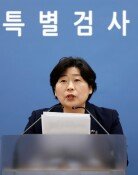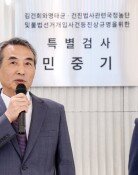Being Head of Tong Is No Longer a Piece of Cake
Being Head of Tong Is No Longer a Piece of Cake
Posted September. 06, 2005 07:13,
The number of candidates who want to run for the position of head of tong (a small neighborhood unit) is increasing mainly due to the nations economic downturn, and the selection criteria are getting more numerous and rigid. Candidates have to undergo such procedures as getting residents recommendations, written tests, and election by the direct voting of residents.
The Haedo 2-dong office (belonging to Nam-gu, Pohang, Gyeongbuk) announced yesterday that it decided to hold a residents vote to select the four heads of tongs who are officially assuming the positions starting next month.
Applications are available from September 15 to 21. After sending information about candidates and ballots to each household from September 23 to 29, the office will count the ballots at 6:00 p.m. on September 29
Since voting rights are only given to heads of households, it is not an equal election. Despite this, they have their own forms and procedures.
Ryu Si-yeol, 50, who are in charge of self-administration in the Haedo 2-dong office said, The head of dong has appointed the head of tong based on residents recommendations until now. However, as the number of candidates who want to run for this position has increased, we decided to hold a residents vote in order to enhance transparency and preempt any suspicion on the selecting procedure.
Prior to this, the Dotong-dong office (belonging to Namwon, Jeonbuk) also elected the heads of tong 14 and 15 in July and March, respectively through direct voting by residents.
The reason for such high competition lies in the fact that without special occupational careers, anyone can enjoy benefits and income to certain level: a 200,000 won basic wage, a 40,000 won meeting allowance, and 100 percent special bonuses on the Lunar New Year and Chuseok (similar to Thanksgiving Day) holidays. In addition, when they serve in this post more than three consecutive years, the government finances the school expenses of middle and high schools of their children.
In some units, however, with competition among applicants getting severe, one influential figure of the community pressed the Gu office to select a particular applicant. This incident led the office to include written test for their selection.
The Bukbu-dong office (belonging to Gimhae, Gyeongnam) elected four heads of tong after conducting a written test that included 20 questions (both subjective and objective measures) and examining their ability to search for information on the Internet.
The written text accounted for 40 points, the information searching ability on the Internet and the interview accounted for 50 points, and the cover letter and social service activities accounted for 10 points. That is why people call it a tongjanggosi (examination to be the head of tong is no less difficult than bar examination).







